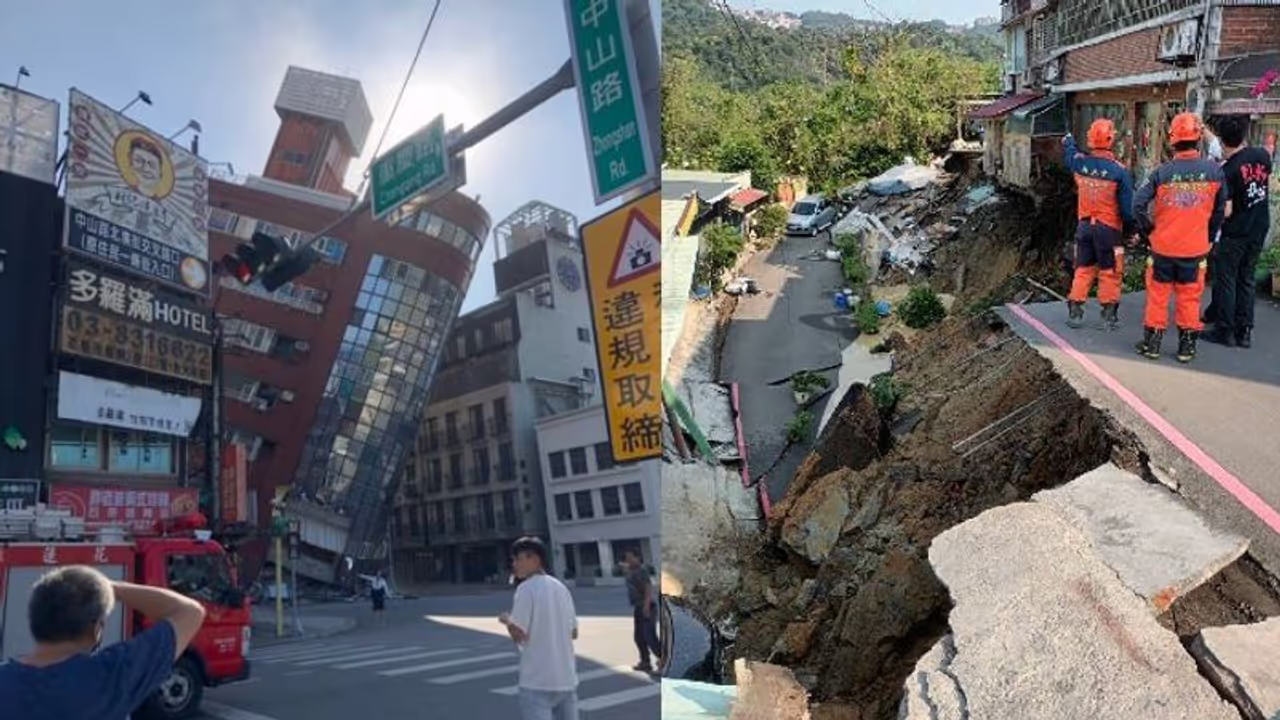A major earthquake hit Taiwan's east shortly before 8:00 am (0000 GMT) local time Wednesday, prompting tsunami warnings for the self-ruled island as well as parts of southern Japan.
An earthquake of significant magnitude struck Taiwan's eastern region just prior to 8:00 am (0000 GMT) local time on Wednesday, triggering tsunami alerts for the island as well as portions of southern Japan. According to the United States Geological Survey (USGS), the quake measured 7.4 on the Richter scale, with its epicenter located 18 kilometers (approximately 11 miles) south of Taiwan's Hualien City, at a depth of 34.8 kilometers. Japan's Meteorological Agency reported the magnitude as 7.5.

The agency anticipated tsunami waves reaching heights of up to three meters (approximately 10 feet) imminently for remote Japanese islands in the area, such as Miyakojima island.
"Evacuate!" said a banner on Japanese national broadcaster NHK.
"Tsunami is coming. Please evacuate immediately," an anchor on NHK said. "Do not stop. Do not go back."
The director of Taipei's Seismology Centre called the earthquake "the strongest in 25 years".
"The earthquake is close to land and it's shallow. It's felt all over Taiwan and offshore islands... it's the strongest in 25 years since the (1999) earthquake," Wu Chien-fu told reporters, referring to a September 1999 quake with 7.6-magnitude that killed 2,400 people.
Live television broadcasts from ports in the Okinawa region, including Naha, depicted ships departing out to sea, likely as a precautionary measure to safeguard their vessels.
From building collapsing and panic among Taiwanese people to dashboard camera footage and landslides, here's a look at some of the dramatic videos of the Taiwan earthquake:
Taiwan frequently experiences earthquakes due to its proximity to the convergence of two tectonic plates.
In September 1999, Taiwan was struck by a 7.6-magnitude earthquake, resulting in the loss of approximately 2,400 lives, marking it as the deadliest natural disaster in the island's history.
Japan encounters roughly 1,500 seismic events annually, with the majority being minor, although their impact varies depending on factors such as the depth of the epicenter beneath the Earth's surface and its geographical location.
The severity of tsunamis, which are immense and potentially destructive waves traveling at speeds of hundreds of miles (or kilometers) per hour, is influenced by numerous factors.
Despite their larger magnitudes, earthquakes typically inflict minimal damage in Japan and Taiwan, owing to specialized construction techniques and stringent building codes.
Japan has developed advanced protocols and technology for alerting and evacuating residents when necessary.
Japan's most significant recorded earthquake occurred in March 2011, registering a massive 9.0 magnitude beneath the northeastern coast, triggering a tsunami that resulted in approximately 18,500 fatalities or individuals reported missing.
The 2011 catastrophe also led to the meltdown of three reactors at the Fukushima nuclear plant, constituting Japan's most severe post-war disaster and the worst nuclear incident since Chernobyl.
The total economic impact was estimated at 16.9 trillion yen ($112 billion), excluding the costs associated with the hazardous decommissioning of the Fukushima facility, a process anticipated to span decades.
Despite the implementation of stricter construction standards, numerous structures, particularly those situated beyond major urban centers, remain aged and susceptible to seismic events.
The vulnerability of structures to seismic events was underscored by the 7.5-magnitude earthquake that struck the Noto Peninsula on New Year's Day in 2024, claiming the lives of over 230 individuals, with a significant number perishing as older buildings collapsed.
